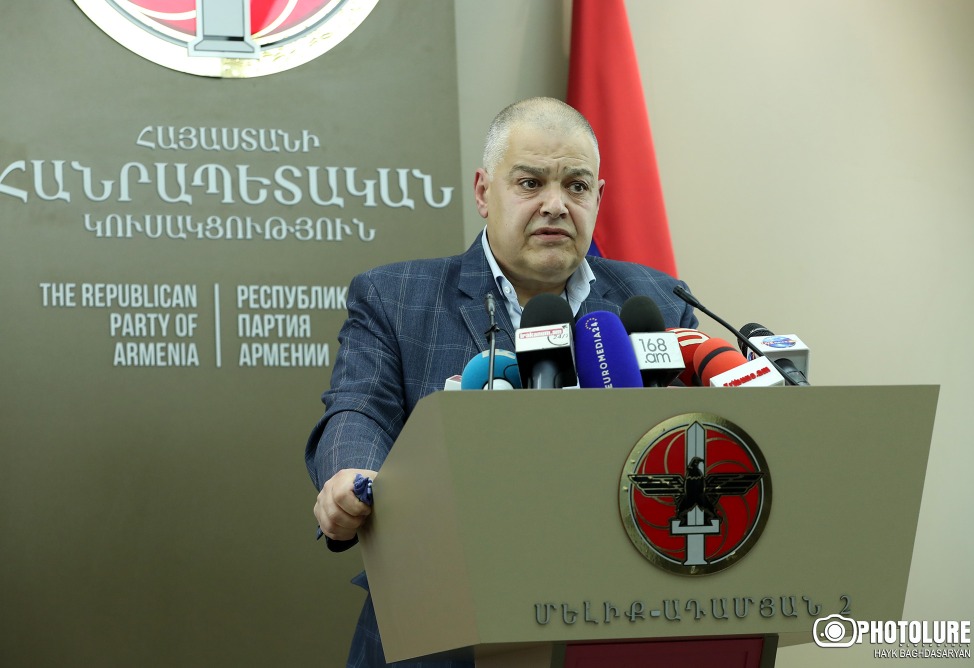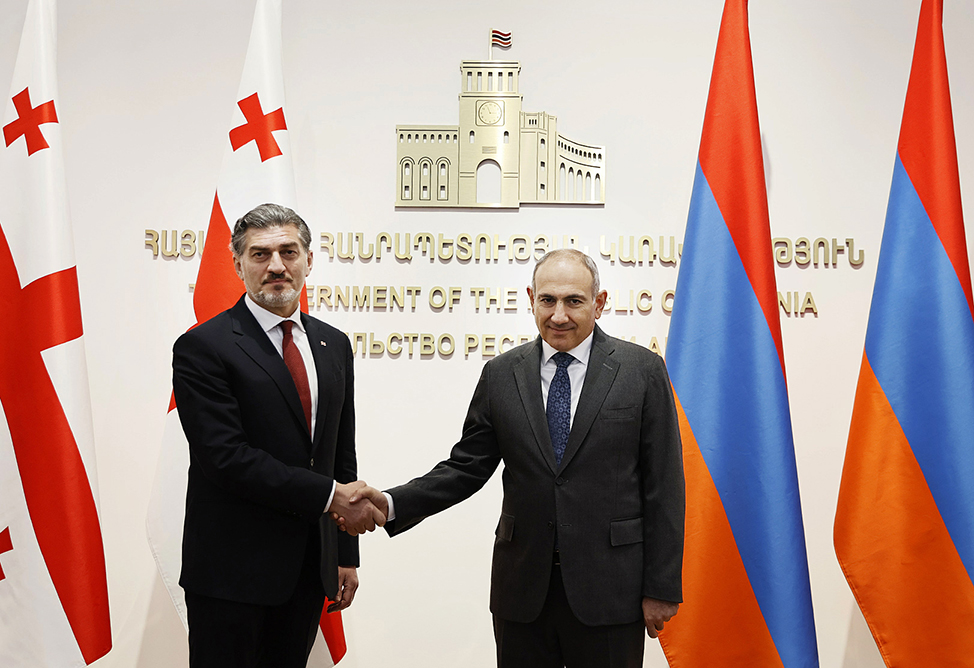Former Justice Minister Calls Armenia's Constitutional Court Decision on Law on Confiscation of Illegal Property Illegal

YEREVAN, April 29. /ARКА/. Former Justice Minister of Armenia and Deputy Chairman of the Republican Party, David Harutyunyan, has expressed concerns over the Constitutional Court's recent ruling on the law "On Confiscation of Illegal Property." According to Harutyunyan, the Court's decision is flawed and violates legal protocols.
On April 16, 2025, the Constitutional Court determined that the law in question aligns with the Basic Law of Armenia. This conclusion arose following an appeal from a group of opposition MPs, represented by Harutyunyan.
Harutyunyan criticized the Court for not holding an oral discussion of the appeal, which he claims contravenes legal standards. In response to a question from Novosti-Armenia news agency regarding comments made by Constitutional Court judge Vahe Grigoryan—which suggested that the court’s resonance in a case does not mandate an oral discussion—Harutyunyan urged the public not to take the judge's words at face value. He emphasized the importance of consulting the relevant section of the Constitution that mandates oral discussions for cases deemed significant.
While he supports the confiscation of illegally acquired property, Harutyunyan cautioned against the populist notion that wealth inherently equates to wrongdoing.
Positive Aspects of the Constitutional Court Decision
Harutyunyan highlighted several benefits of the Constitutional Court's ruling, particularly noting that the conclusion specifies that property connected to the relevant crime is eligible for confiscation.
"In the context of addressing crime, confiscation of property can only occur if there is a proven causal link between the crime and the property in question," stated Harutyunyan.
He also pointed out that the Constitutional Court made it clear that if an illegal property case is opened against an official based on operational intelligence, any property this official acquired prior to taking office cannot be seized.
"The Constitutional Court ruled that the National Assembly must establish a statute of limitations for confiscation through legislation. However, this does not impose a strict legal deadline on the National Assembly for making these changes, as the court merely emphasizes the need for a timeline. Ideally, the court should have deemed this legal gap unconstitutional while allowing the National Assembly a chance to rectify.’ He said.
Negative aspects of the Constitutional Court's decision
Harutyunyan outlined the significant downsides of the ruling. For one, the law takes on a retroactive effect, which he deemed both absurd and unjust. The appeal to the Constitutional Court highlighted a key constitutional principle: that laws which negatively affect a person's legal status should not operate retroactively. However, the Court misinterpreted this principle, suggesting instead that illicitly acquired property had prior legal protections.
"There are notable gaps concerning the right to a fair trial. The law mandates individuals to prove the legality of their property. If they fail, they risk losing it. Yet, in many instances, the state itself has either destroyed the necessary documents through expiration of storage policies or lost them due to careless handling," Harutyunyan pointed out.
He emphasized the lack of clearly defined criteria for initiating investigations against officials, noting that mere suspicion of legal violations isn’t even required. This poses a substantial risk, as the law could easily be weaponized against political adversaries.
"The right to judicial protection is severely restricted, particularly since the examination period extends back to September 1991, which coincides with the collapse of the Soviet Union. During that era, documentation standards in Armenia were vastly different from current norms; the economy operated largely in the 'shadow' and was marred by hyperinflation. Consequently, the law imposes an unreasonable demand, requiring individuals to substantiate the legality of transactions that are 30-35 years old—something that is practically impossible in many cases," Harutyunyan noted.
He pointed out that the principles of equality between the involved parties have been overlooked. The Prosecutor General's Office holds significant state powers that include conducting operational-search activities, employing experts at public expense, and exercising state coercion. Furthermore, individuals are only afforded one month to review materials that have been gathered by the relevant authority over a span of three years.
"In assessing the constitutionality, the Constitutional Court failed to consider both this action and the established law enforcement practices. If it had, referencing the ECHR ruling in the Todorov case, it would have had to conclude that the Prosecutor General's Office's practices and the actions of the anti-corruption courts are inconsistent with both the Constitution of the Republic of Armenia and the ECHR," Harutyunyan stated.
Moreover, he argued that the Constitutional Court did not adhere to the legal requirements set for its operation. The application was submitted in November 2021, yet it took an astonishing 3.5 years for the Constitutional Court to reach a decision, well beyond the nine-month maximum period mandated by law. Even accounting for the case suspension, the Court exceeded this timeline by over two years.
"While there are some positive aspects within the Constitutional Court's decision, it overlooked several critical and evident issues that will inevitably come before the Constitutional Court or the ECHR in the context of individual complaints," Harutyunyan concluded.
The Law as a Tool for Political Manipulation
He pointed out that the verdict presents half-baked solutions that not only fail to address the issue but could also spark new conflicts and harm Armenia's interests.
"It appears the primary intention is to create a distraction for political adversaries, drawing them into prolonged battles to defend against these allegations, thus diverting their focus from pressing political matters," Harutyunyan stated.
When asked about the lack of response from European entities regarding the law, Harutyunyan explained, "They have remained silent even in the face of more egregious violations, likely due to geopolitical considerations." He emphasized that their reactions can be conveniently timed based on their own interests.
About the Law
The Law of the Republic of Armenia titled "On Confiscation of Property of Illegal Origin" was enacted on April 16, 2020, and came into effect on May 23 of the same year. Its purpose is to enhance the fight against corruption and restore social equity by reclaiming properties acquired through illegal means for the state. This law targets assets valued over 50 million drams (approximately $100,000).
In 2023, a mechanism was implemented in Armenia to reclaim unlawfully obtained properties through judicial processes. Reports indicate that over $30 million has been added to the state budget in the form of seized real estate and cash during this timeframe. In February 2025, the Anti-Corruption Court of Armenia made a landmark ruling, ordering the transfer of seven properties in Yerevan and Tsaghkadzor, with a combined cadastral value of around $4.35 million to the state.-0-



